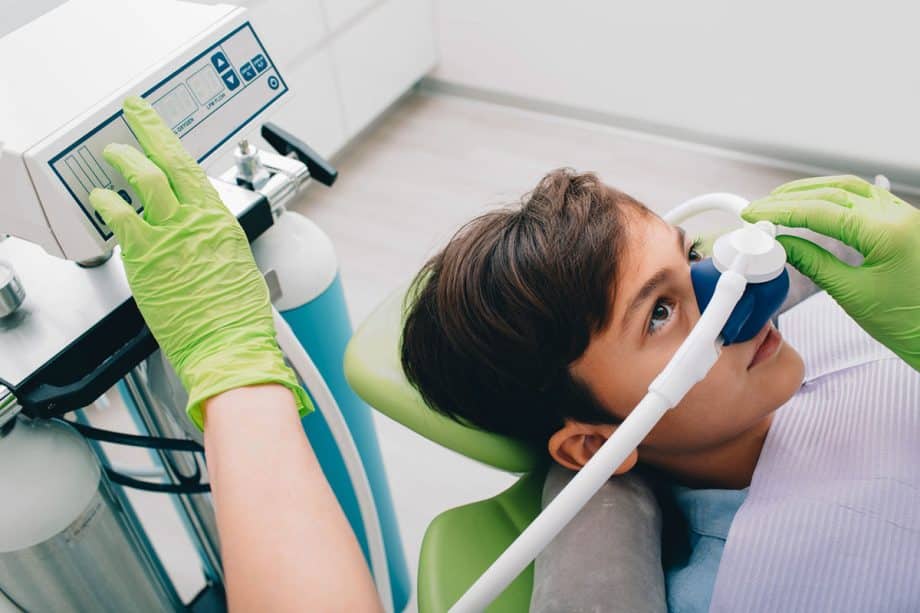Sedation has been used in dentistry for many years, but recently it has become a more widely accepted method for helping patients feel more comfortable during dental procedures. Sedation may be used to ease dental anxiety or to make invasive procedures more tolerable. There are different methods that provide varying levels of sedation from mild to deep.
When it comes to choosing the best type of sedation for your needs, you may want to know how long it takes for each to take effect and wear off. Here’s an overview of the various types of sedation available in dentistry and how long they may stay in your system.
What is Sedation?
Sedation refers to medically induced relaxation techniques. These may be applied in different ways, but the goal is to help you feel more calm and comfortable, reducing stress and anxiety. Deeper levels of sedation can have an amnesia effect, where you don’t remember anything about the procedure afterwards.
Types of Sedation
- Nitrous oxide. The most common sedation method used in dentistry is nitrous oxide. A mask is placed over your nose that delivers a specialized mix of nitrogen and oxygen. It takes effect quickly and provides a mild level of sedation where you are awake and still partially aware of your surroundings, but you simply feel more relaxed. The effects of nitrous oxide wear off quickly, completely leaving your system in a matter of minutes.
- Conscious oral sedation. An oral sedative can be taken in pill or liquid form prior to a dental procedure. It may take up to an hour to take effect and creates a relaxed, sometimes sleepy feeling. You will need someone to drive you to and from your appointment because it can take anywhere from a few hours to up to 8 hours to leave your system. Plan to rest at home for the remainder of the day after taking an oral sedative.
- IV sedation. Intravenous sedation provides a deeper level of sedation. You are technically conscious and responsive, but you likely won’t remember anything about the procedure afterwards. You will need someone to drive you to and from your appointment, and someone to stay with you at home while you recover. It can take up to 24 hours for IV sedation to completely leave your system.
Factors Affecting How Long a Sedative Stays in Your System
- Age. Younger patients may recover more quickly from sedation than older patients.
- Metabolism. Your individual metabolism will affect the length of time that a sedative stays in your system.
- Weight. Weight also affects the amount of time it takes for sedation to leave your body.
- Overall health. Your overall health may also play a role in your recovery from sedation.
Benefits of Sedation
- Reduced anxiety. If you are nervous about dental procedures, sedation can reduce your anxiety and stress levels.
- Less aware of pain. In many cases lower doses of local anesthesia are required when sedation is used because you are less aware of pain.
- Suppressed gag reflex. If you have a strong gag reflex, dental care can be a challenge. But sedation can suppress your gag reflex as it helps you relax.
- Improved oral health. Some patients avoid dental care due to anxiety, but sedation can make it possible for you to get the care you need for optimal oral health.
- Most patients are candidates. The vast majority of patients are candidates for sedation dentistry. Medical conditions may interfere with eligibility only in rare cases.
Choosing the Best Type of Sedation for You
If you’re trying to decide between the different types of sedation available, consider the characteristics of each and your biggest priorities. If you want something that wears off quickly so you can return to your regular daily activities after your procedure, nitrous oxide may be the best choice for you.
However, if you need something that will provide a deeper level of sedation so you can relax and avoid feelings of stress and anxiety, oral sedation or IV sedation may be better options. If you are uncomfortable with needles, an oral sedative may be your best option. IV sedation provides the deepest level of sedation if you prefer to be completely unaware of your surroundings.
Frequently Asked Questions About Sedation Dentistry
Are there any risks associated with sedation dentistry?
There are always minor risks associated with any type of sedation. Nitrous oxide has the lowest risk of side effects between the various types of sedation offered in dentistry. The dental team is trained to minimize risks and ensure your safety while under sedation.
Will I still need local anesthesia if I have sedation?
You will most likely still need local anesthesia in the area of your mouth that is being treated even if you are under sedation. You may need less than you would if you were not sedated.
Learn More About Sedation From Eagle Endodontics
If you are interested in sedation for an upcoming dental or endodontic procedure, schedule a consultation with Eagle Endodontics. Contact us today to learn more and make an appointment.

